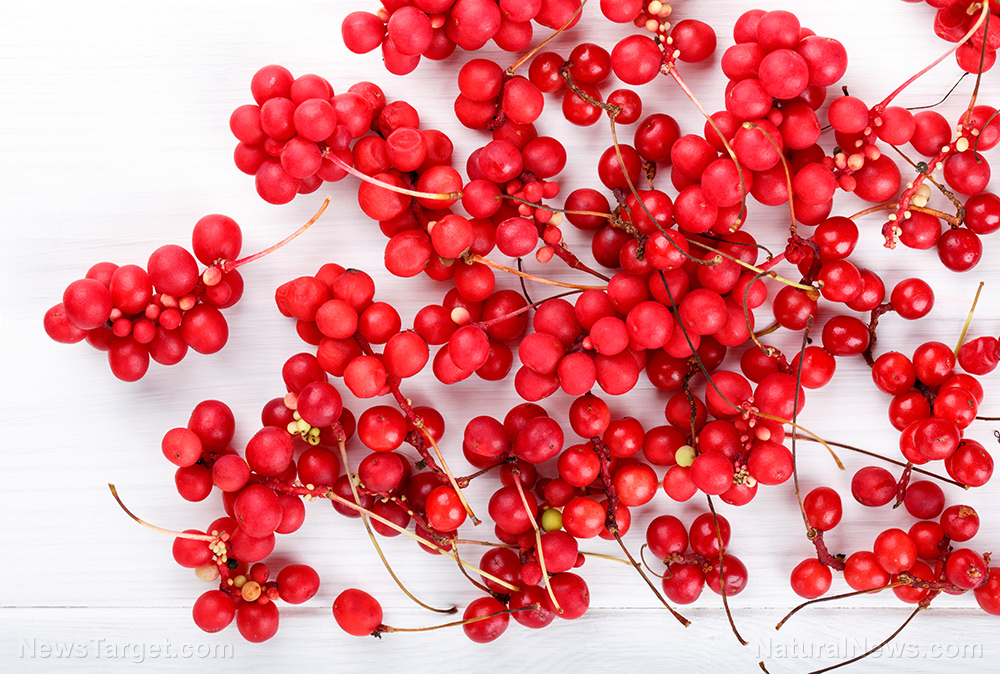Pomegranates alleviate severe menopausal symptoms
04/25/2019 / By Michelle Simmons

Middle-aged women start to experience menopausal symptoms, such as mood swings, depression, bone loss, and declining estrogen levels. Fortunately, there’s a natural way to reduce these symptoms: Consuming pomegranates.
Pomegranates, which have been cultivated for more than 4,000 years, benefit women in many ways. These include:
Reversing bone loss: A 2004 study published in the Journal of Ethnopharmacology revealed that drinking pomegranate juice can help reverse bone loss in menopausal women. In this study, researchers fed rats with an extract of pomegranate juice and seeds for two weeks. The rats initially had their ovaries removed and suffered from accelerated bone loss, which is a typical symptom of menopause. However, their bone mineral loss went back to normal after the intake of pomegranate juice and seeds.
Boosting mood: The same researchers of the 2004 study also discovered that the rats that consumed pomegranate extract had lower levels of depression indicators. From these findings, they concluded that pomegranate would be effective for women experiencing symptoms of depression.
Keeping the heart healthy: Women who have been through menopause are more likely to die from coronary heart disease compared to those women the same age before menopause. But by eating pomegranates and drinking their juice, this risk could be reduced. Various studies have shown that pomegranates can prevent low-density lipoprotein (LDL) cholesterol from oxidizing, which can damage the lining of the arteries. The fruits, then, can reduce the risk of atherosclerosis, lower blood pressure, and reverse plaque buildup in the carotid arteries by up to 29 percent. It has also been found to increase oxygen flow to the heart muscle and prevent blood clotting by slowing down platelet aggregation and blood thinning. (Related: Pomegranate juice found to clean your arteries and lower your risk of a heart attack.)
Warding off breast cancer: Lab studies have revealed that pomegranates contain anthocyanidins, flavonoids, and oils that have protective effects against breast tumors. In addition, pomegranates are a natural adaptogen because they can increase the levels of estrogen when the body lacks the hormone but block production when levels are too high. Pomegranates’ ability to adapt to the body’s needs is one of the advantages of natural foods over pharmaceuticals. In a study published in the Journal of Nutritional Biochemistry, researchers compared pomegranate extracts to drugs Tamoxifen and Estradiol. They found that pomegranate extract may potentially prevent estrogen-dependent breast cancers. Another study published in the journal Nutrition and Cancer also found that pomegranate extract derived from the peels contains polyphenols that play a role in fighting against breast cancer. The researchers found that pomegranate extract can alter the ability of cancer stem cells to reproduce themselves. The extract inhibited breast cancer cells’ ability to self-renew, which is retained for several cell generations. These findings suggest that pomegranates have potential for the prevention of cancer and the inhibition of disease progression.
Other health benefits of pomegranate
Pomegranate isn’t only good for menopausal symptoms. There are also other benefits that pomegranates offer, both for men and women. Some studies have shown that drinking eight ounces of pomegranate juice every day can help fight obesity by curbing hunger, while other studies have demonstrated that they can improve memory in older adults. Pomegranates also have anti-inflammatory properties, which can help neutralize inflammation and reduce the severity of symptoms in people with arthritis. Moreover, there is also some evidence that suggests drinking pomegranate juice can promote healthy sexual functioning in men, preventing erectile dysfunction.
These health benefits of pomegranates can be attributed to their high levels of antioxidants, vitamin C, vitamin A, vitamin E, and folic acid. Follow SuperFoods.news to learn more about the health benefits of pomegranates.
Sources include:
Tagged Under: antioxidants, food is medicine, foodcures, grocery cures, menopausal symptoms, Menopause, natural cures, natural medicine, natural treatment, Pomegranates, research, women's health


















